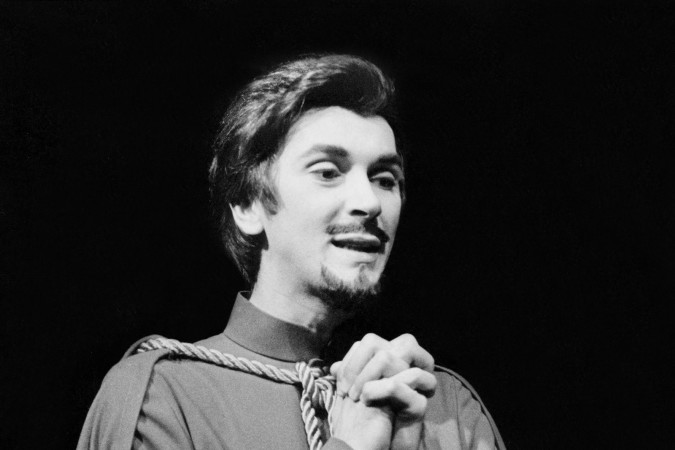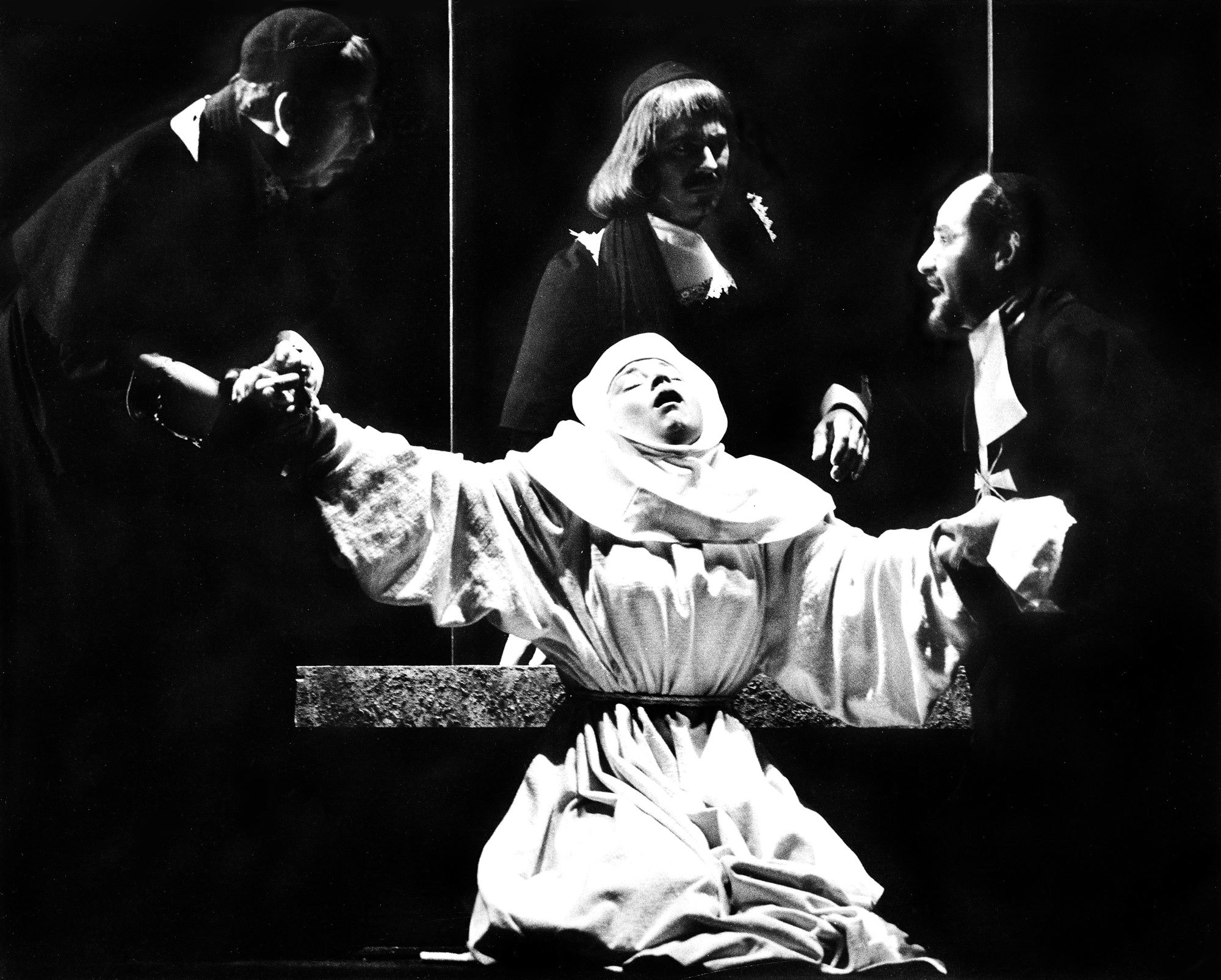Do Devils Exist
From the Center Theatre Group Archives

In honor of our 50th Anniversary, we are mining our archives for gems that highlight important and interesting moments from throughout Center Theatre Group’s history. This “Note on the Play” by Founding Artistic Director Gordon Davidson appeared in the program for our very first production, The Devils, which opened on April 14, 1967. The Devils, which Davidson directed and featured Frank Langella as Father Urbain Grandier, was a controversial choice to open the Taper—one that set the thought-provoking tone Center Theatre Group would become known for.
John Whiting’s play, The Devils, is based on Aldous Huxley’s historical narrative, The Devils Of Loudun, published in 1952. The two works are complementary, providing separate but related insights into the complexity of human experience. Fusing religion, psychology, and metaphysics, each explores the mysterious experiences of the mind in a dramatic study of man struggling with the devils of his own soul.
The events, in the years 1623 to 1634, surrounding the immolation of Father Urbain Grandier of St. Peter’s Church in the French provincial town of Loudun are true. The world of 17th-century France, of Europe, and indeed the new Americas, was one of political and religious unrest, producing fear, persecution, and torture in the name of justice and salvation. The reality of witchcraft and possession was an accepted one. Polish Jews were fighting their dybbuks; England, in the wake of the Reformation, was ferreting out religious non-conformists; and in Salem, Massachusetts, feelings which would later erupt in the infamous witch trials were already brewing.
The witches being hunted were defined as “persons who hath conference with the Devil, to consult with him or to do some act.” And anyone considered to be dealing deliberately with the Devil was assumed guilty of a capital crime and faced capital punishment. Behind this absolute law stood an ancient and traditional belief that the Devil, the supreme embodiment of evil in this world, was the sworn enemy of God and sought to wrest the human soul from its natural Heavenly Father.
In Loudun, as elsewhere, religious activities were affairs of state. Under Louis XIII and his powerful Cardinal Richelieu, l’eglise, like l’etat, c’est moi. If the ordinary and uneducated citizenry feared possession and joined in persecutions, at least their ignorance and fright were human and pitiable; but among the nobles of church and state, activities in a daemonic controversy had the ring of expedient absolutism.
Each culture shapes its demons, like its deities, according to special needs and notions. That evil is characteristic of man, entering into every choice he makes, is a conclusion which all ages have reached. The Devils is about the force of evil as it exists today in man. Both Huxley and Whiting believed that every natural tendency generates its own opposite. The play is about the corruption—political and human—of these forces. Love turns to hate, innocence to depravity, indulgence of the senses stimulate reflective intellect and the virtues of truth and mercy become falsehood and inhuman cruelty.
The Devils is a religious play—a fable of good and evil which is closer to the Greeks than to Freud. It is a metaphysical play in which the problems of why we live and how we live, coupled with an unending and necessary search for God take rightful precedence over social and political problems.
The play has the classic Christian architecture of temptation, fall, and redemption. Father Grandier and Sister Jeanne are genuinely tragic figures caught up in forces outside and greater than themselves. His weakness is that of the flesh; her weakness that of the soul. Jeanne risks her soul’s damnation to bring about Grandier’s destruction; Grandier risks his by trying to bring about his own. Both are searching for God.
And above all it is a lyrical poetic play which John Whiting said speaks of the reality of evil. Whiting once wrote, “I no longer believe the old view that anyone is basically good. He is open to either good or evil. It is up to him which he chooses.” The appearances of doing good are often profoundly deceptive. Souls are saved by the Holy not by the busy. Those who crusade not for God but against evil leave the world worse rather than better, for by thinking of evil we create occasions for evil. What is inside us, not around us, causes our corruption.
Today most organized religions are in various stages of re-evaluation and adjustment to meet the challenges of our times. Jewish as well as Christian thought has been reshaped by existentialism. Martin Buber, one of the major Jewish thinkers, poignantly revealed what it means to be human in an inhuman time. Life is not only a problem but a mystery. We know God, as we do other human beings, by confronting Him. God can be addressed, but not expressed. The problem is not to know about God, but to know God. “He who seeks God apart from God,” Buber warns, “will find him only as the Devil.”


